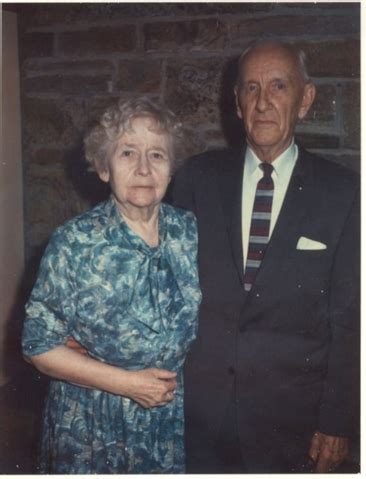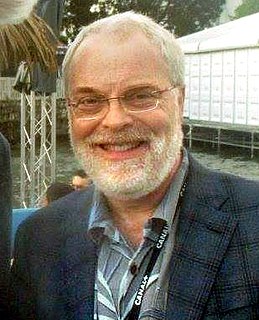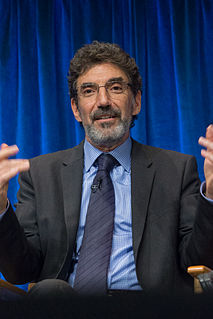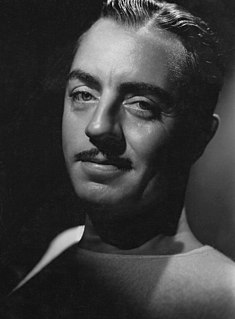A Quote by Leo Tolstoy
The main qualities that had earned him this universal respect in the service were, first, an extreme indulgence towards people, based on his awareness of his own shortcomings; second, a perfect liberalism, not the sort he read about in the newspapers, but the sort he had in his blood, which made him treat all people, whatever their rank or status, in a perfectly equal and identical way; and, third - most important - a perfect indifference to the business he was occupied with, owing to which he never got carried away and never made mistakes.
Quote Topics
About
All People
Awareness
Away
Based
Blood
Business
Carried
Carried Away
Earned
Equal
Extreme
First
Got
Had
Him
His
Identical
Important
Indifference
Indulgence
Liberalism
Made
Main
Mistakes
Most
Never
Newspapers
Owing
Own
People
Perfect
Perfectly
Qualities
Rank
Read
Respect
Second
Service
Shortcomings
Sort
Status
Third
Towards
Treat
Universal
Way
Were
Whatever
Which
Related Quotes
Blaise Pascal used to mark with charcoal the walls of his playroom, seeking a means of making a circle perfectly round and a triangle whose sides and angle were all equal. He discovered these things for himself and then began to seek the relationship which existed between them. He did not know any mathematical terms and so he made up his own. Using these names he made axioms and finally developed perfect demonstrations, until he had come to the thirty-second proposition of Euclid.
After visiting these places, you can easily understand how that within a few years Hitler will emerge from the hatred that surrounds him now as one of the most significant figures who ever lived. He had boundless ambition for his country which rendered him a menace to the peace of the world, but he had a mystery about him in the way that he lived and in the manner of his death that will live and grow after him. He had in him the stuff of which legends are made.
There were times when it appeared to Dorian Gray that the whole of history was merely the record of his own life, not as he had lived it in act and circumstand, but as his imagination had created it for him, as it had been in his brain and in his passions. He felt that he had known them all, those strange terrible figures that had passed across the stage of the world and made sin so marvellous, and evil so full of subtlety. It seemed to him that in some mysterious way their lives had been his own.
We really wanted someone from the culture to sort of do that. And we heard about Taika [Waititi]. We saw his movie Boy, which that he had directed and written and which was great. We read another one of his scripts that was great. And we brought him in, showed him what we were doing. He really liked the idea.
The mockery made him feel an outsider; and feeling an outsider he behaved like one, which increased the prejudice against him and intensified the contempt and hostility aroused by his physical defects. Which in turn increased his sense of being alien and alone. A chronic fear of being slighted made him avoid his equals, made him stand, where his inferiors were concerned, self-consciously on his dignity.
The pitch to which he was aroused was tremendous. All the fighting blood of his breed was up in him and surging through him. This was living., though he did not know it. He was realizing his own meaning in the world; he was doing that for which he was made.... He was justifying his existence, than which life can do no greater; for life achieves its summit when it does to the uttermost that which it was equipped to do.
The last time I talked to Axl was in 1996. That was the last time we exchanged any sort of words. There was a rumor that I talked to him a while back [and asked to rejoin the band]. I did go to his house one night, and I talked to his assistant about something that had to do with this lawsuit that we were involved in. But it got turned into something else. He went out and made a press release that said I actually spoke to him, which was all bullshit. I was really shocked.
What is natural in me, is natural in many other men, I infer, and so I am not afraid to write that I never had loved Steerforth better than when the ties that bound me to him were broken. In the keen distress of the discovery of his unworthiness, I thought more of all that was brilliant in him, I softened more towards all that was good in him, I did more justice to the qualities that might have made him a man of a noble nature and a great name, than ever I had done in the height of my devotion to him.
Man is sitting disconsolate on an anthill one morning. God asks him what the matter is and man replies that the soil is too swampy for the cultivation of the yams which God has directed him to grow. God tells him to bring in a blacksmith to dry the soil with his bellows. The contribution of humanity to this creation is so important. God could have made the world perfect if he had wanted. But he made it the way it is. So that there is a constant need for us to discuss and cooperate to make it more habitable, so the soil can yield, you see.
I'm thinking of writing a children's story about a leaf on a tree who arrogantly insists he's a self-made, independent leaf. Then one day a fierce wind blows him off his branch and to the ground below. As his life slowly ebbs away, he looks up at the magnificent old tree that had been his home and realizes that he had never been on his own. His entire life he had been part of something bigger and more beautiful than anything he could have imagined. In a blinding flash, he awakens from the delusion of self. Then an arrogant, self-centered kid rakes him up and bags him.
Among the English authors, Shakespeare has incomparably excelled all others. That noble extravagance of fancy, which he had in so great perfection, thoroughly qualified him to touch the weak, superstitious part of his readers' imagination, and made him capable of succeeding where he had nothing to support him besides the strength of his own genius.
When Christ was about to leave the world, He made His will. His soul He committed to His father; His body He bequeathed to Joseph to be decently interred; His clothes fell to the soldiers; His mother He left to the care of John; but what should He leave to His poor disciples that had left all for Him? Silver and gold He had none; but He left them that which was infinitely better, His peace.
I have never gone into a picture without first studying my characterization from all angles. I make a study of the fellow's life and try to learn everything about him, including the conditions under which he came into this world, his parentage, his environment, his social status, and the things in which he is interested. Then I attempt to get his mental attitude as much as possible.
He never hurries. He never shows his cards. He always hangs up first....Like when we first started talking on the phone, he would always be the one who got off first. When we kissed, he always pulled away first. He always kept me just on the edge of crazy. Feeling like I wanted him too much, which just made me want him more....[It was] excruciating and wonderful. It feels good to want something that bad. I thought about him the way you think about dinner when you haven't eaten for a day and a half. Like you'd sell your soul for it.






































